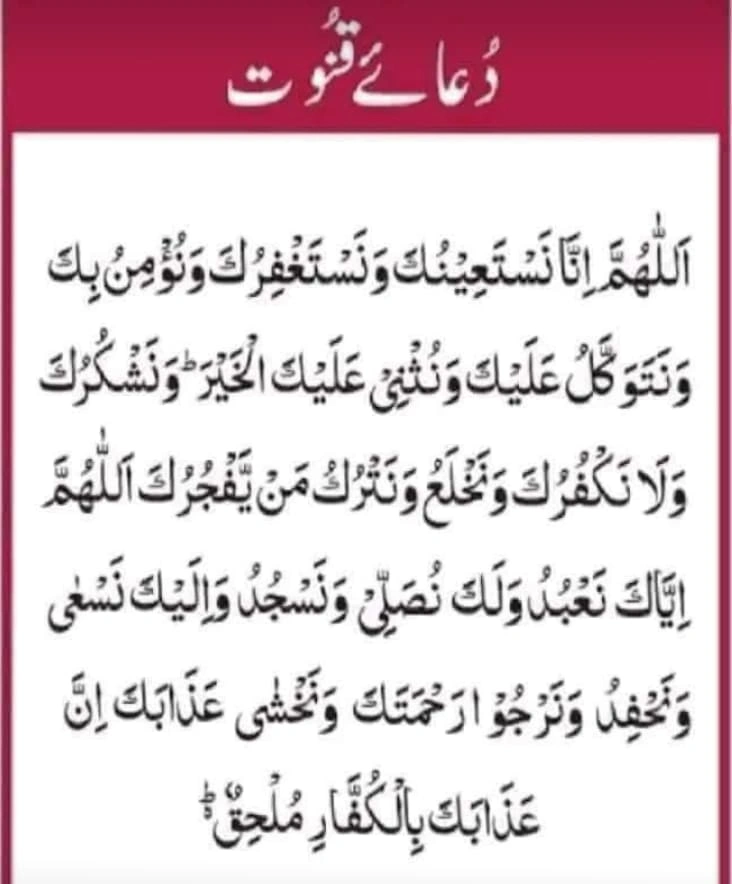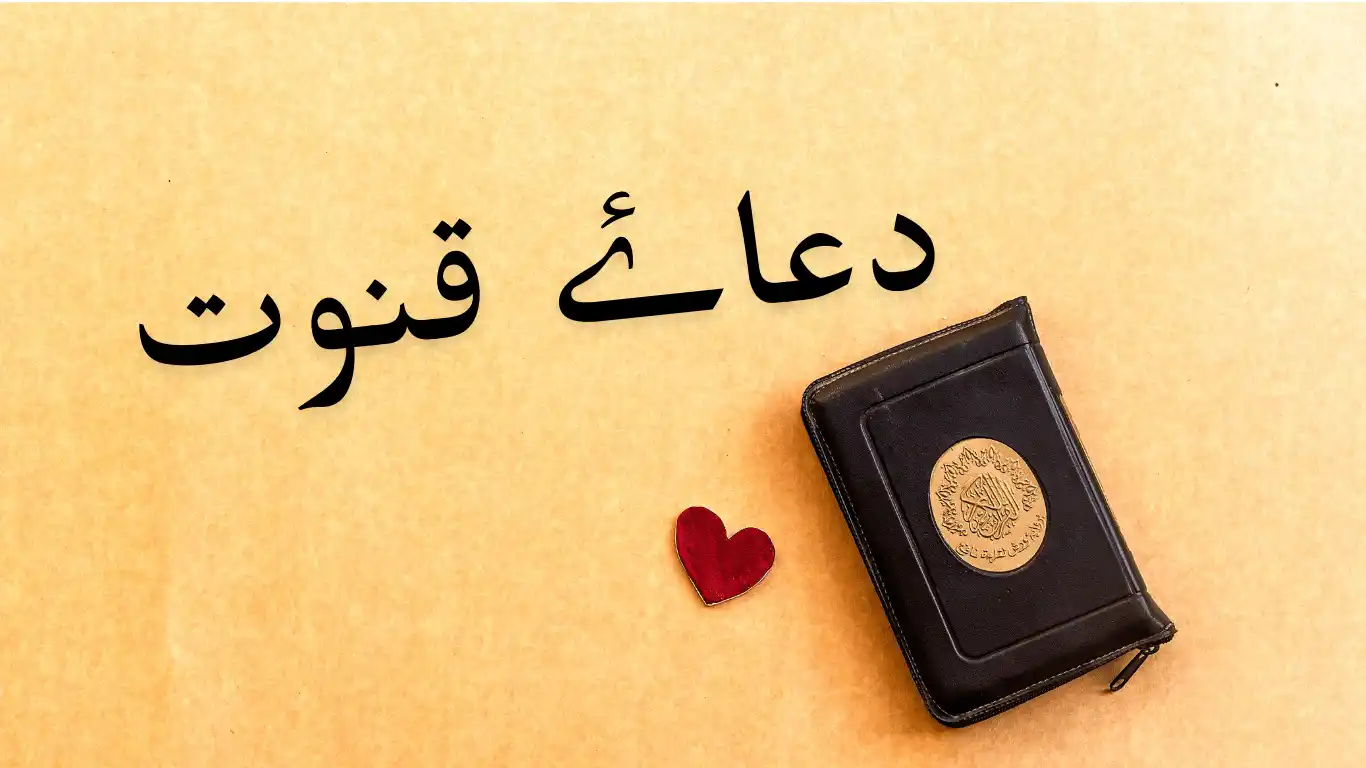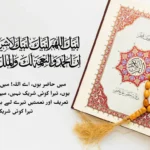Dua e Qunoot is a deeply significant supplication recited during the Witr prayer, the last part of the nightly Isha Salah. It holds a profound place in the hearts of Muslims, serving as a powerful invocation for Allah’s guidance, forgiveness, and blessings. In this article, we’ll explore the Arabic text, transliteration, and translations of Dua e Qunoot with a verse-by-verse breakdown, making it easier for readers to understand and memorize.
What is Dua e Qunoot?
The term “Qunoot” (قنوت) comes from the Arabic root meaning submission, humility, and obedience. Dua e Qunoot is recited in the Witr prayer, which is an emphasized Sunnah in Islam. It is a heartfelt supplication seeking Allah’s help, protection, and mercy.
Dua e Qunoot in Arabic
Here is the complete Dua e Qunoot in Arabic as shown in the image:

اللّٰهُمَّ اِنَّا نَسْتَعِينُكَ وَنَسْتَغْفِرُكَ وَنُؤْمِنُ بِكَ وَنَتَوَكَّلُ عَلَيْكَ وَنُثْنِي عَلَيْكَ الْخَيْرَ وَنَشْكُرُكَ وَلَا نَكْفُرُكَ وَنَخْلَعُ وَنَتْرُكُ مَنْ يَّفْجُرُكَ اَللّٰهُمَّ اِيَّاكَ نَعْبُدُ وَلَكَ نُصَلِّي وَنَسْجُدُ وَإِلَيْكَ نَسْعٰى وَنَحْفِدُ وَنَرْجُوْا رَحْمَتَكَ وَنَخْشٰى عَذَابَكَ اِنَّ عَذَابَكَ بِالْكُفَّارِ مُلْحِقٌ.
Transliteration of Dua e Qunoot
For ease of pronunciation, here is the transliteration of the dua:
Allahumma inna nasta’eenuka wa nastaghfiruka wa nu’minu bika wa natawakkalu ‘alayka wa nuthni ‘alaykal khayr wa nashkuruka wa la nakfuruka wa nakhla’u wa natruku man yafjuruk. Allahumma iyyaka na’budu wa laka nusalli wa nasjudu wa ilayka nas’a wa nahfidu wa narju rahmataka wa nakhsha ‘adhabaka inna ‘adhabaka bil-kuffari mulhiq.
Urdu Translation of Dua e Qunoot
The Urdu translation of this beautiful supplication is:
اے اللہ! ہم تجھ سے مدد چاہتے ہیں اور تجھ سے معافی مانگتے ہیں اور تجھ پر ایمان رکھتے ہیں اور تجھ پر بھروسہ کرتے ہیں اور تیری تعریف کرتے ہیں اور تیرا شکر ادا کرتے ہیں اور تیری ناشکری نہیں کرتے اور ہم ان کو چھوڑ دیتے ہیں جو تیری نافرمانی کریں۔ اے اللہ! ہم صرف تیری عبادت کرتے ہیں اور تیرے لیے ہی نماز پڑھتے اور سجدہ کرتے ہیں اور تیری طرف دوڑتے اور جھکتے ہیں اور تیری رحمت کے امیدوار ہیں اور تیرے عذاب سے ڈرتے ہیں، بے شک تیرا عذاب کافروں کو پہنچنے والا ہے۔
Verse-by-Verse Breakdown
1. اللّٰهُمَّ اِنَّا نَسْتَعِينُكَ وَنَسْتَغْفِرُكَ
Transliteration: Allahumma inna nasta’eenuka wa nastaghfiruka
Translation: O Allah, we seek Your help and ask for Your forgiveness.
- This verse emphasizes seeking Allah’s assistance in all matters and asking for His pardon for sins.
2. وَنُؤْمِنُ بِكَ وَنَتَوَكَّلُ عَلَيْكَ
Transliteration: Wa nu’minu bika wa natawakkalu ‘alayka
Translation: We believe in You and place our trust in You.
- A declaration of faith and reliance on Allah as the sole provider and protector.
3. وَنُثْنِي عَلَيْكَ الْخَيْرَ وَنَشْكُرُكَ وَلاَ نَكْفُرُكَ
Transliteration: Wa nuthni ‘alaykal khayr wa nashkuruka wa la nakfuruka
Translation: We praise You for all that is good and are grateful to You; we do not deny Your blessings.
- This verse expresses gratitude for Allah’s countless favors and praises His goodness.
4. وَنَخْلَعُ وَنَتْرُكُ مَنْ يَّفْجُرُكَ
Transliteration: Wa nakhla’u wa natruku man yafjuruk
Translation: We abandon and forsake those who disobey You.
- A commitment to distance oneself from disobedient behavior and individuals who turn away from Allah’s commands.
5. اَللّٰهُمَّ اِيَّاكَ نَعْبُدُ وَلَكَ نُصَلِّي وَنَسْجُدُ
Transliteration: Allahumma iyyaka na’budu wa laka nusalli wa nasjudu
Translation: O Allah, we worship You alone and offer prayers and prostrations only for You.
- A reaffirmation of monotheism, worship, and devotion to Allah alone.
6. وَإِلَيْكَ نَسْعٰى وَنَحْفِدُ وَنَرْجُوْا رَحْمَتَكَ وَنَخْشٰى عَذَابَكَ
Transliteration: Wa ilayka nas’a wa nahfidu wa narju rahmataka wa nakhsha ‘adhabaka
Translation: We strive towards You, hasten to serve You, hope for Your mercy, and fear Your punishment.
- This verse captures the balance of hope and fear that every believer should maintain.
7. اِنَّ عَذَابَكَ بِالْكُفَّارِ مُلْحِقٌ
Transliteration: Inna ‘adhabaka bil-kuffari mulhiq
Translation: Indeed, Your punishment will overtake the disbelievers.
- A reminder of the ultimate justice of Allah and the consequences of disbelief.
Importance of Dua e Qunoot in Witr Prayer
Dua e Qunoot is an essential Sunnah in the Witr prayer, often recited during the last rak’ah. It strengthens the bond between a believer and Allah, encapsulating faith, reliance, gratitude, and devotion. Regular recitation of this dua helps Muslims cultivate humility and steadfastness in their worship.
FAQs:
Dua e Qunoot is recited during the Witr prayer to seek Allah’s help, forgiveness, and guidance while expressing gratitude and devotion to Him.
While it is preferred to recite it in Arabic during Salah, the meaning can be understood in any language for personal supplications outside of prayer.
Reciting Dua e Qunoot is not obligatory but is a strongly emphasized Sunnah, particularly in the Witr prayer.
Conclusion
dua e qunoot with urdu translation is a beautiful and powerful supplication that encompasses faith, hope, gratitude, and humility. Understanding its meaning and significance allows Muslims to connect more deeply with this invocation during their prayers. May Allah accept our prayers and grant us His mercy. Ameen.




